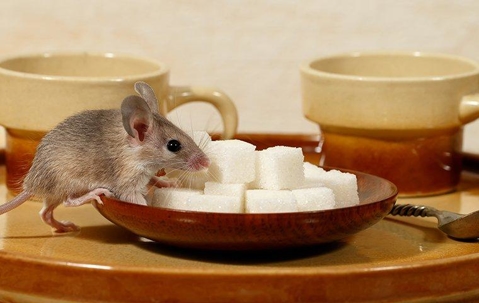Despite the fact that the average mouse is just under 4 inches long, these tiny creatures can cause big problems in New Haven homes. The white-footed mouse is the most common species of mouse in Connecticut, closely followed by deer mice and house mice. All mice species seek food and shelter in homes, especially during the winter months. Once inside, their rapid reproduction rate can quickly escalate the problem. Female mice get pregnant up to 10 times each year and give birth to three to 14 babies each time.
How to Identify a Mouse
A mouse has a pointed nose, small eyes, a tail almost as long as its body, and rounded, hairless ears. Their colouring ranges from light brown to black. A white-footed mouse is a dark brown with white fur on its belly.
Mice are omnivores. They eat nuts, seeds, roots, fruits, and insects. If given the opportunity, they’ll also eat the meat from other tiny creatures. Like most rodents, they gather and store extra food in the fall for winter, or seek out shelter that provides a warm environment with an endless supply of food, such as your home.
Mice Infestation Health Risks
Over 21 million homes are invaded by rodents in the United States every winter. Their search for food and warmth leads them to homes where they can gain entry through the smallest cracks and crevices. Once inside a home, mice spread disease and can cause extensive property damage. The most common viruses and diseases caused by mice include:
- Hantavirus
- Bubonic plague
- Salmonellosis
- Rat-bite fever
Property Damage Caused by Mice
In addition to the health risks of mice, having an infestation puts your property at risk. They commonly destroy insulation in attics and can chew through walls, cabinets, cardboard, and electrical wiring. Mice chewing electrical wires is estimated to cause 25% of house fires in the United States each year.
How to Prevent Mice Infestations
Prevention is your best line of defense against a mouse infestation. It’s easier to prevent them from gaining access to your home than it is to remove them after they’ve gotten inside!
You can take steps to keep mice out of your home, including:
- Sealing all access points to your home
- Keeping food and pet food in tightly sealed containers
- Repairing damaged screens
- Keeping crawl spaces, attics, and basements well ventilated and dry
- Storing firewood away from the home
- Keeping shrubs, trees, and brush away from the home
The rapid reproduction of mice makes it nearly impossible to remove a mouse infestation on your own. You can use mouse traps and poison to eliminate some mice, but their new babies will have more babies in a matter of weeks, and before you know it, you won't be able to keep up with their numbers! If you discover mice in your home, contact the professionals at Connecticut Pest Elimination for effective rodent extermination services. We can remove your existing infestation and help prevent future infestations.

